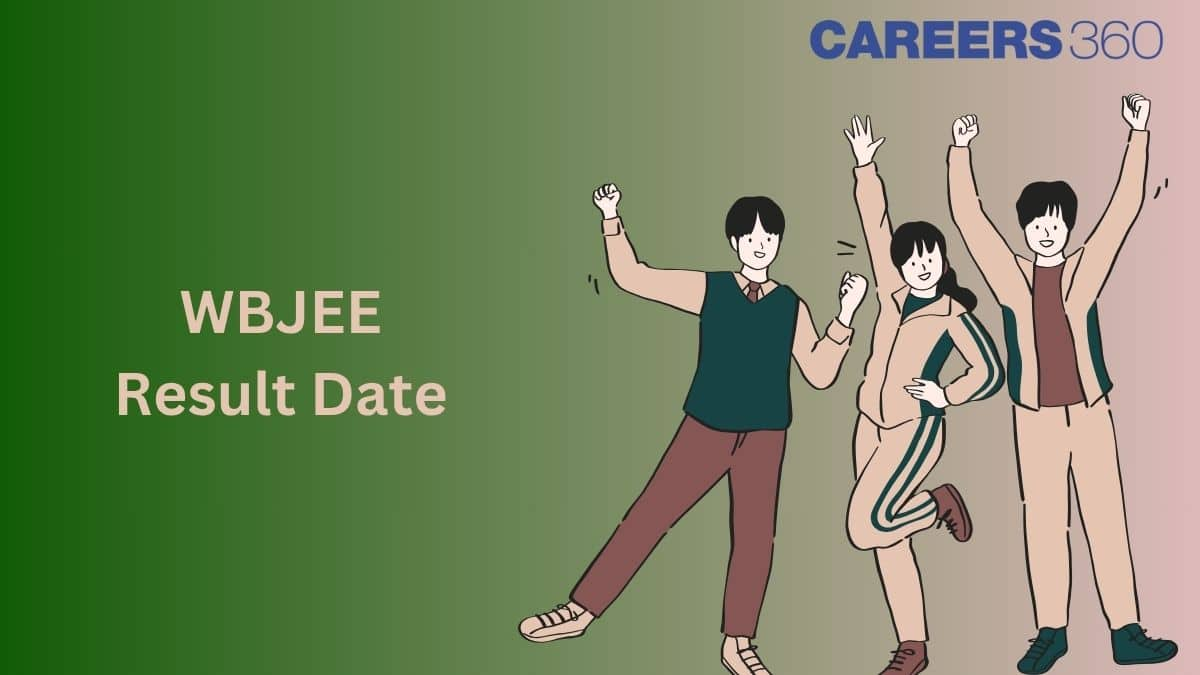WBJEE 2025 Result Date (Out) – Check Scorecard Release Time & Download Link
WBJEE 2025 Result Date: The WBJEE Board has announced the WBJEE result date 2025 on the official website, wbjeeb.nic.in. The WBJEE 2025 result date is August 22, 2025. To download the result, candidates will need their application number and password. Candidates who qualify in the exam only will be eligible for the WBJEE 2025 counselling process. Aspirants who crossed the WBJEE 2025 cutoff only will be allowed for admission into the respective colleges. Read the article below completely to know more details regarding the WBJEE 2025 Result Date.
This Story also Contains
- WBJEE Result 2025 Date
- How to Check WBJEE 2025 Result?
- Details Mentioned on WBJEE Result 2025 Score Card
- WBJEE 2025 Merit List

WBJEE Result 2025 Date
The authority has announced the WBJEE 2025 result date online. Below are the WBJEE result 2025 dates.
Event | Date |
WBJEE Result 2025 Date | August 22, 2025 |
WBJEE 2025 counselling Date | August 2025 |
WBJEE 2025 result official website | wbjeeb.nic.in |
How to Check WBJEE 2025 Result?
The WBJEE 2025 result has been announced on August 22, 2025 on the official website. Candidates who had appeared for the WBJEE 2025 examination can easily check their WBJEE 2025 results on the official website wbjeeb.nic.in. Below is the step-by-step procedure on how to check WBJEE results. Follow this process.
First, visit the WBJEE 2025 official website wbjeeb.nic.in
Click on the WBJEE result link.
Enter your credentials, like application number and password.
The WBJEE result will be displayed on the screen.
Download the WBJEE result PDF copy, and take a printout for future reference.
Details Mentioned on WBJEE Result 2025 Score Card
Candidates, after downloading their WBJEE 2025 result scorecard, must check the details below so that they can attend further WBJEE 2025 counselling sessions. If the details mentioned below are not available, then there will be a problem in the counselling process.
Candidates Name
Roll Number
Rank secured in WBJEE 2025
Total marks obtained
Individual scores in Physics, Chemistry and Mathematics
Date of Birth
Category
Application Number
Gender
WBJEE 2025 Merit List
The authority will release the WBJEE 2025 exam merit list on the official portal itself. All the candidates whose names appear on the merit list must attend the WBJEE 2025 counselling session. The General Merit List that will be released will be applied in all rounds of WBJEE counselling sessions.
Category-wise merit list will also be released, such as SC rank, ST rank, OBC A rank, etc. Merit list will be prepared based on the marks scored by the candidate in all subjects of the WBJEE 2025 examination.
Frequently Asked Questions (FAQs)
The WBJEE 2025 result has been declared on August 22, 2025.
Candidates can download the WBJEE 2025 results on the official website wbjeeb.nic.in.
Popular Courses and Specializations
List of colleges accepting WBJEE
Browse Engineering Colleges by State
Questions related to WBJEE
On Question asked by student community
Hello,
A non-local student does not get full fee reimbursement through MHT-CET or WBJEE. Full fee reimbursement is usually given only to students who belong to the home state and satisfy the state-specific eligibility rules. In MHT-CET, only Maharashtra domicile candidates under valid categories are eligible for government fee reimbursement.
Hi dear candidate,
WBJEE, NIPER, JEE and GATE all are entrance exams for higher studies.
WBJEE is engineering entrance exam for West Bengal colleges.
NIPER is a PG program for admission in pharmacy masters or PhD programs.
JEE is all over India entrance exam for engineering.
GATE is all over
Hello dear candidate,
You cannot get admission later through WBJEE counselling for that year if you missed the decentralized counselling as it is the official last chance to get admission through WBJEE.
Only chance left is by management quota but the fees are very high.
The Mop Round for WBJEE B.Tech counselling in 2025 would be held in late 2025, after the main counselling and allotment rounds have concluded. You can also refer to the official website of WBJEE for further information or detailed information.
Hello,
With a rank of 10536 in WBJEE 2025, you would have a chance in the government engineering colleges, but you have to choose less popular branches where the competition is less or not crowded. Still, your chances of admission depend on factors like specific colleges, cutoffs, the demand of
